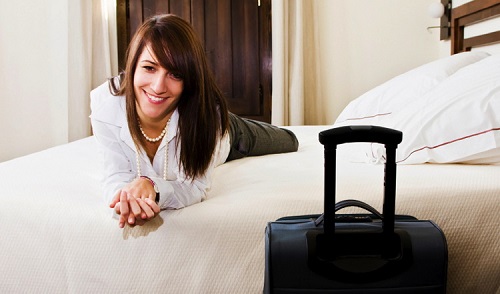✕

Column: industry Tag: STR,Airbnb,Hotel Data Published: 2017-02-06 15:13 Source: Author:

An unprecedented independent analysis by STR compared 32 months of Airbnb proprietary data with hotel performance data in 13 major global markets. The analysis revealed key findings regarding occupancy levels in each sector as well as trends in hotel compression nights and rate premiums.
STR compared hotel performance data from its global database with Airbnb-sourced data in 13 markets from 1 December 2013 through 31 July 2016. For the purposes of the analysis, STR excluded Airbnb data for units deemed incomparable to hotels (such as shared accommodations).
Markets included: Barcelona, Boston, London, Los Angeles, Mexico City, Miami, New Orleans, Paris, San Francisco, Seattle, Sydney, Tokyo and Washington, D.C.
“We are excited to share our findings from the first comprehensive study on this topic that uses actual Airbnb data and not a scraped data set,” said Jan Freitag, STR’s senior VP for lodging insights. “It is not surprising that results were different in each market, but data suggests that Airbnb owners seem to not deploy yield management strategies as effectively as their hotel counterparts. Occupancies of hotels are higher than Airbnb occupancies, while hotels charge a higher room rate.”
Three key findings:
•Airbnb occupancy was the highest in markets where hotels had high occupancy. For example, during the 12 months ending July 2016, Tokyo reported the highest Airbnb occupancy level (61.5%) among the 13 markets and ranked second with an 84.8% hotel occupancy level.
•Despite increases in Airbnb supply, the long-range trend of hotel compression nights (occupancy at or above 95%) did not greatly vary in the seven U.S. markets: 61 total in 2013, 75 total in 2014, 76 total in 2015 and 71 total in 2016.
•There was little degradation on hotelier pricing power during those compression nights. In the seven U.S. markets, hoteliers priced rooms 30.8% higher on compression nights than non-compression nights in 2013, 25.6% higher in 2014, 34.9% higher in 2015 and 34.8% higher in 2016.
Other findings from the analysis include:
•As of November 2016, Airbnb listings (3.0 million listings) outnumbered the inventory of the world’s largest hotel company, Marriott International, Inc. (1.1 million rooms), by nearly three units to one. However, when removing units that are not comparable to hotels, Airbnb listings numbered 1.0 million.
•Airbnb’s share of market demand and revenues were approximately 4% and 3%, respectively.
•Airbnb guests typically stayed longer than the average hotel guest in the seven U.S. markets: 46.5% of all Airbnb roomnights sold were part of a seven-day or longer stay, while 9% of all hotel roomnights sold were attributed to extended-stay brands.
•Hotel occupancy was significantly higher than Airbnb occupancy during the 12 months ending July 2016. Hotel occupancy was highest in Sydney (85.4%) and lowest in Mexico City (68.7%). Airbnb occupancy was highest in Tokyo (61.5%) and lowest in Mexico City (18.4%).
•In general, Airbnb’s share of business travel (an estimated 10%) was substantially smaller than its share of leisure travel.
•During the 12 months ending July 2016, hotel average daily rate (ADR) in the seven U.S. markets was US$16 higher than Airbnb rates. The largest difference was reported in Miami, where hoteliers charged US$44 more on average than did Airbnb hosts. San Francisco was the most expensive market for hotels (US$232.12) and Airbnb units (US$207.39).
•Hotel ADR increased in all but one market (Paris) in the 12 months ending July 2016. Airbnb rates decreased in eight markets and increased in five. Supply may have been a contributing factor to that trend as the majority of the markets analyzed saw available Airbnb units increase at or above 40%—and in some cases more than 100%.
“We hope that this in-depth analysis will assist operators, lawmakers and pundits in gaining better insights into markets and the current state of the hotel industry as Airbnb continues to expand its foothold as a more established lodging provider,” Freitag said.
Previous:Hilton Overhauls Rewards Program
Next:GBR Consulting Reports Greek Hospitality Industry Performance 4th Quarter 2016
Hot key words
Hot Products
Popular Vendors